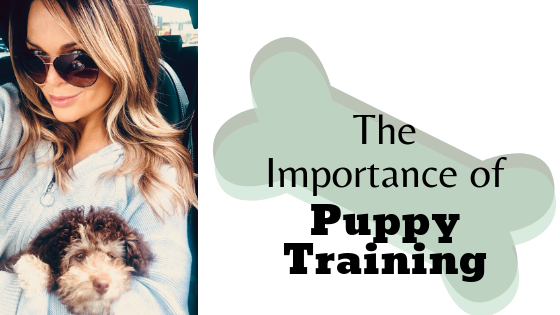If you are thinking of getting a new puppy, or have already gotten one, then congratulations. You are making a wonderful choice that will not only change the life of that dog but will change yours as well. While owning a puppy is exciting, they also require a lot of work and that work begins the day you bring him or her home. Many new dog owners are not utilizing early age puppy training and here is what they are missing out by skipping this stage.
Preventative measures
It is much easier to prevent a problem that might occur rather than to fix a problem that has occurred. Puppies are very intuitive and learn habits quickly, even the bad ones. It is important to teach them the correct habits when they are young with and try to quickly diminish any signs of negative habits. Otherwise, it will be much harder later down the road when they are older and used to their actions.
Obedience
Dogs are technically only considered ‘puppies’ until the age of about 5 months old. Once they reach 5 months, they become an adolescent, which is a harder age for them to learn and be trained properly. Proper training for dog obedience should be conducted in increments and frequently. While some of the training can be lost over time, the fundamentals will stick, especially if they are practiced often. It is important to remember also that dogs use their mouths for many functions, so it is the owner’s responsibility to teach them early on about what can and cannot go into their mouths.
Socialization
It is imperative to introduce puppies to other dogs and humans of all ages early in life. The main influence behind aggression in dogs is due to fear. Puppies who are introduced to all types of potentially fear-invoking environments early in their training are less likely to experience that fear later in their lives. This, paired with positive reinforcement, will ensure that the puppy is properly socialized to a number of environments that they may face as an adult dog.

Prevent pet homelessness
One common reason that many dogs end up being surrendered to shelters is due to behavior and disobedience. However, what many owners do not realize is that they may be at fault for this through neglected training early on. Not only is it a disservice to the dog to forego puppy training early on, but a poorly trained dog is less likely to be adopted by someone else.
Training your dog is not only important for their wellbeing, but it also is a great opportunity for a new owner to bond with their companion. Puppies will become connected and learn to trust their owner through training exercises, making their companionship even stronger. If you are unsure of where to start with puppy training, training classes are a great way to receive professional guidance.


